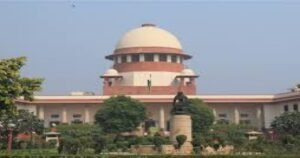Delay in FIR | Consequences of Delay | Legal Analysis

Delay in FIR
'Delay in FIR' and its consequences. In the context of India's criminal justice system, the prompt registration of the First Information Report (FIR) has been consistently emphasized by legal precedents.
These cases illuminate the critical role of timely reporting in preserving evidence, ensuring witness reliability, and upholding the integrity of criminal investigations.
Mandatory Registration of FIR
The case of Lalita Kumari v. Government of Uttar Pradesh (2014) is a watershed moment in Indian jurisprudence.
The Supreme Court mandated the registration of an FIR under Section 154 of the Code of Criminal Procedure (CrPC) if the information discloses a cognizable offense.
This landmark decision establishes the mandatory nature of FIR registration, underscoring its significance in initiating criminal proceedings promptly.
Preservation of Evidence
In Babubhai v. State of Gujarat (2010), the Gujarat High Court highlighted the importance of FIRs in preserving evidence.
The court emphasized that the timely registration of an FIR is crucial for securing crime scenes and preventing the deterioration of critical evidence.
This decision underscores the need to act swiftly to maintain the integrity of the evidentiary trail.
Effect on Witness Statement due to Delay in FIR
State of Haryana v. Ram Kishan (2017) is a case that exemplifies the impact of delayed FIRs on witness accounts.
The Punjab and Haryana High Court observed that delayed reporting can lead to inconsistencies in witness statements, impairing the reliability of their testimony.
The judgment reinforces the necessity of timely FIR registration for maintaining the accuracy of witness accounts.
Effect on Credibility due to Delay in FIR
The case of State of Karnataka v. M. Vinay (2009) delves into the credibility concerns arising from delayed FIRs.
The Karnataka High Court acknowledged that delays can raise questions about the authenticity of the information provided.
This case highlights the importance of addressing credibility concerns promptly to ensure a fair and transparent legal process.
Delay in Police Investigation
The judgment in Satvinder Kaur v. State (Government of NCT of Delhi) (1999) sheds light on the investigative challenges posed by delayed FIRs.
The Delhi High Court recognized that delayed reporting hampers the collection of relevant evidence, making it challenging for investigators to build a coherent case.
This decision underscores the need for expeditious FIR registration to enhance the efficiency of criminal investigations.
Delay in Suspect Apprehension
In Babubhai v. State of Gujarat (2010), the Gujarat High Court stressed the connection between prompt FIR registration and suspect apprehension.
The court highlighted that delayed reporting provides suspects with an opportunity to evade justice, emphasizing the necessity of swift action to enhance the chances of apprehending those accused of crimes.
Public Trust
The case of Zahira Habibullah Sheikh v. State of Gujarat (2004) explores the impact of delayed FIRs on public trust.
The Supreme Court recognized that a perception of sluggishness in addressing criminal incidents could erode public confidence in the criminal justice system.
This case underscores the importance of maintaining public trust through the timely and efficient handling of criminal matters.
Conclusion
These legal precedents from India reiterate the maxim that "Delay in FIR is Fatal."
The cases highlight the crucial role of prompt FIR registration in preserving evidence, ensuring witness reliability, addressing credibility concerns, overcoming investigative challenges, facilitating suspect apprehension, and maintaining public trust.
Adhering to these legal principles is paramount for fostering a robust and effective criminal justice system in India.
Delay in FIR can also lead Anticipatory Bail to the accused because it create doubt on the allegation made in the complaint.
The effect of Delay in FIR can be seen in many 498-A IPC Judgments where women filed complaint after inordinate delay.
Questions & Answers on FIR
(a) If complainant doesn't explain undue delay in FIR, What will be effect ?
Ans. Where delay in lodging complaint and registration of FIR has been satisfactorily explained, the delay by itself is no ground for disbelieving the prosecution evidence particularly when it had been accepted both by the Sessions Court and High Court. (Dilawar Singh vs. State of Haryana, 2015 1 SCC 737)
The mere delay caused in lodging the FIR containing a satisfatory explanation would not render the prosecution version brittle. (Panchu Mondol alias Panchu Gopal Mondal vs. State of West Bengal, 2020 Cri.L.J. 836 )
Even if there is some unexplained delay, Court has to take into consideration whether it can be termed as abnormal. (Raja Hussain vs. State, 2020 Cri.L.J 1102).
Delay in lodging first information report cannot be used as a ritualistic formula for discarding prosecution case and doubting its authenticity.
The Courts cannot overlook the facts that in sexual offences and, in particular, the offence of rape and that too on a young illiterate girl, the delay in lodging the FIR can occur due to various reasons. [Deepak vs State of Haryana, (2015) 4 SCC 762]
